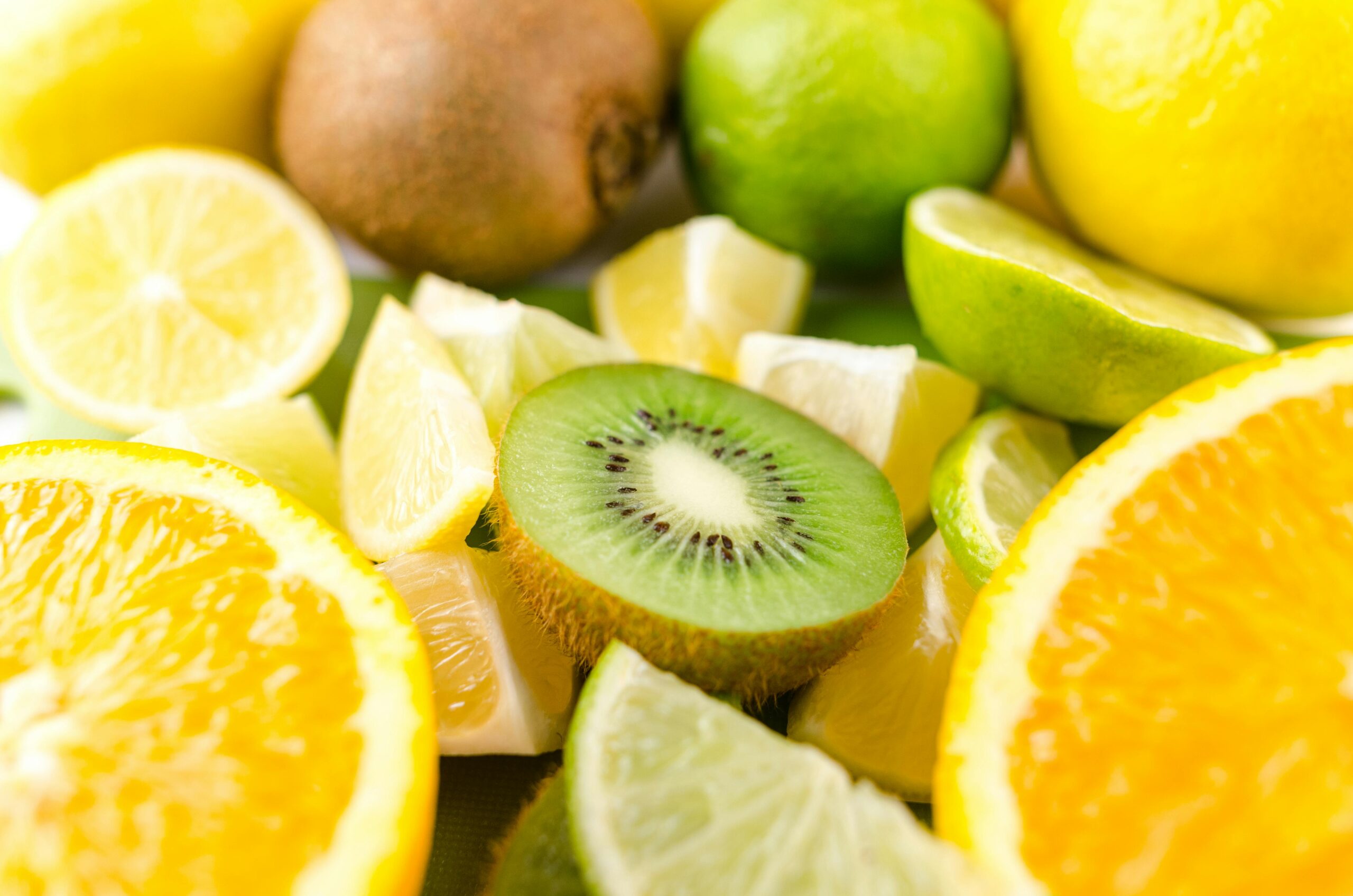Did you know that Vitamin C is a nutrient that your body cannot make itself or store for later use? That’s right! It is crucial for us to get a daily dose of Vitamin C so that it can fulfil its many important bodily functions.
Functions of Vitamin C include:
- Promoting healthy skin and collagen production: Aids in wound healing, bone, and muscle strength.
- Improving absorption of essential minerals: Particularly iron.
- Lowering the risk of gout.
- Preventing damage from free radicals.
- Boosting the immune system: Helps prevent and fight colds and flus.
Who is most likely to be deficient in vitamin C?
Various medical conditions, lifestyle and environmental factors can cause Vitamin C deficiency. Exposure to free radicals such as air pollutants, smoke and UV light from the sun, fussy eaters who eat a limited variety of foods, kidney disease and cancer are just some of the things which can cause a person to become Vitamin C deficient.
What are the symptoms of vitamin C deficiency?
- Dry splitting hair
- Gingivitis (inflamed and bleeding gums)
- Rough, dry, scaly skin and/or dry red spots on the skin
- Decreased wound healing
- Easy bruising
- Nose bleeds
- Weakened immune system (regular colds and infections)
- Digestive disorders like leaky gut syndrome
- Swollen and painful joints
Where/how can I get my daily dose of vitamin C?
The best way to get Vitamin C is through food. This includes eating a variety of fresh fruits and vegetables daily. Vitamin C levels in fruits and vegetables are reduced when they have been stored for a long time and/or have been cooked. So, to ensure that you are getting the most out of your diet, eat fresh fruit and vegetables, try it raw when possible or choose to lightly steam your food to keep the most vitamins in minerals in.
Foods high in Vitamin C – try eating 3 of these per day to reach your Vitamin C goals:
- Red and green capsicums
- Lemons, oranges, grapefruit
- Strawberries
- Kiwi fruit
- Broccoli
- Cauliflower
- Papaya
- Pineapple
- Brussel sprouts
- Kale
How much vitamin C should I be having per day?
For adults, the recommended daily dose of Vitamin C for general maintenance is 65 to 90 milligrams. However, increasing to 2,000 milligrams per day whilst experiencing a cold/flu, will speed up your recovery process. This dose can vary depending on your age, gender, smoking status, whether you are pregnant and/or breastfeeding or if you have certain medical conditions. It is important to talk to a health practitioner when using supplements to make sure you are taking what is best for you and at the correct dose.
Vitamin C immune boosting juice recipe:
- 4 apples (cored)
- 5 carrots
- 3 lemons
- 4-5 oranges
- Fresh ginger (2 inch x 1-inch piece)
- Fresh turmeric (1-2 tablespoons)
Using a juicer or blender, juice/blend all ingredients together. If using a blender, strain through a cheesecloth to discard the pulp. Transfer into an airtight bottle and store in the refrigerator for up to three days.
Interesting fact: Vitamin C is most effective when taken as a preventative measure rather than when symptoms of a cold or flu have already hit. If taken on a regular basis, Vitamin C supplements have been shown to shorten the length of a cold and lessen the associated symptoms.



